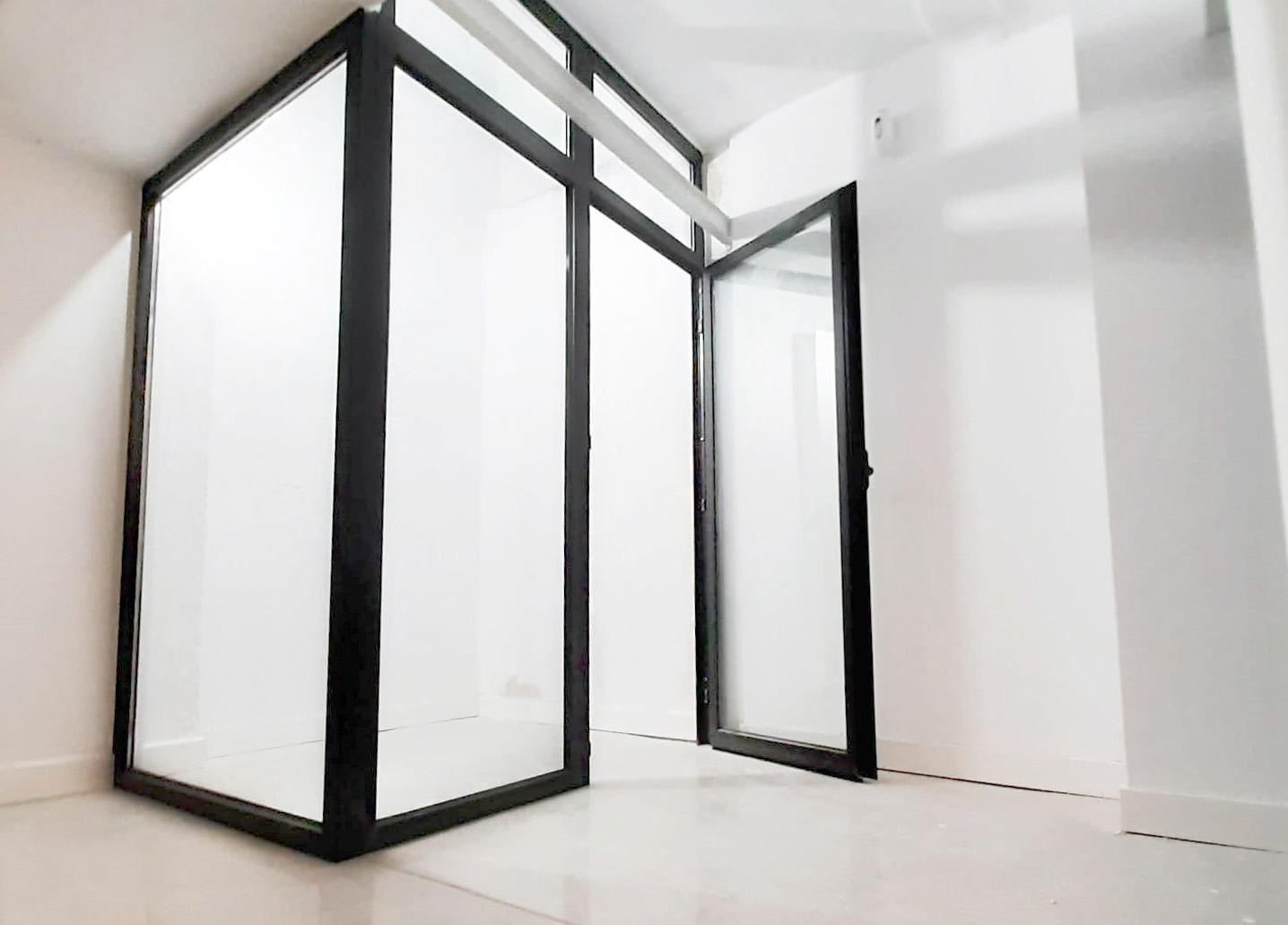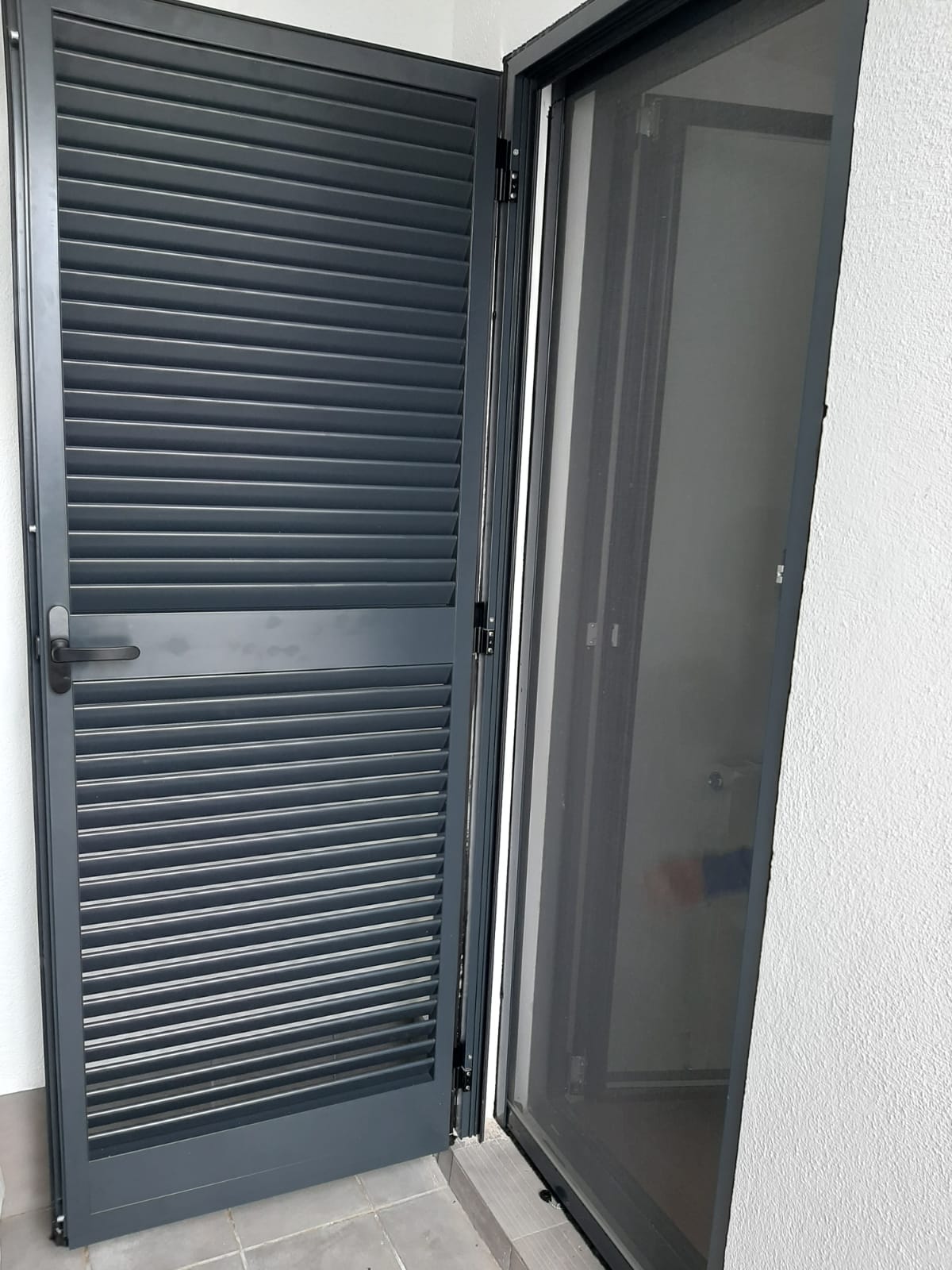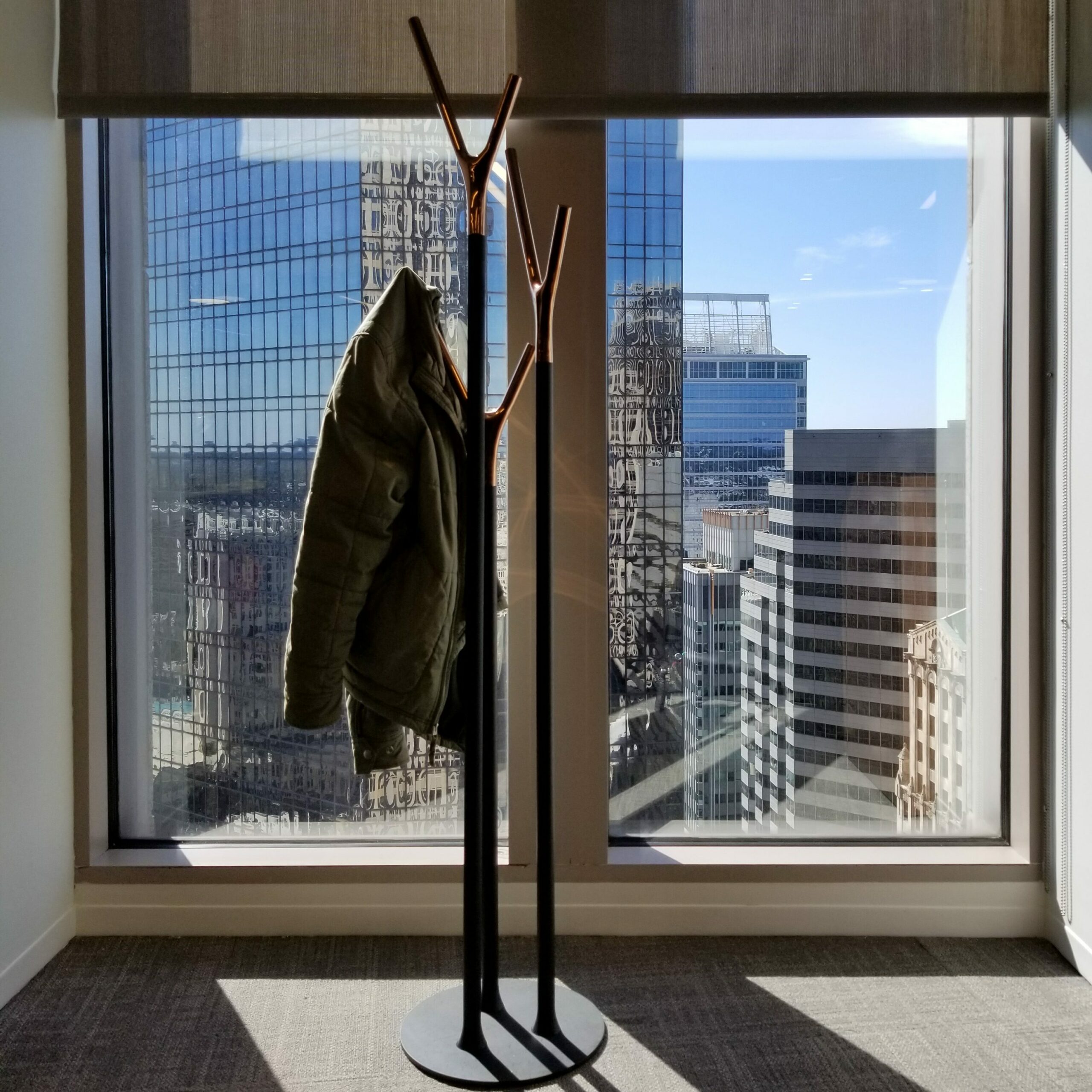
Aluminium enclosures and their benefits
17 February, 2021
Grey lacquered aluminium shutter
22 February, 2021For anyone building or remodeling a home, energy efficiency is a key factor. From insulation to location, the way a house is built can have a direct impact on the amount of energy it consumes. While a home that stays comfortable in all seasons without employing an active heating or cooling system can be an expensive goal for many people, there is something relatively simple you can add to your home to help passively control the temperature: smart shades.
Smart, motorised blinds can help you control the light gain and heat loss your home naturally experiences throughout the day, simply by opening and closing at certain pre-programmed times. With the incorporation of smart home technology, blinds can actually learn when to open and close based on temperature and sunlight, maximising the energy efficiency of your HVAC system.

Here are the advantages of smart blinds to show you that they are a good choice for your home.
Comfort
Smart blinds are motorised, they can be opened and closed at the touch of a button, a remote control or with a simple app on a smartphone. In addition, the ability to set schedules to open and close them at specific times means that, thanks to their artificial intelligence, you may never need to worry about them.
Energy saving
Connecting blinds to a smart home network helps minimise the amount of energy used by heating, ventilation and air conditioning by allowing the blinds to react independently to readings from temperature and sunlight sensors that are also connected to the smart network. As a result, the blinds will actually know when they should be closed during the hottest part of the day to reduce heat input into the home or if they should be opened during a sunny day in winter to allow the sun to warm a room naturally.
Integration with the smart home
Smart thermostats have a wealth of data to determine whether opening or closing smart blinds will help reduce energy consumption, such as the time of day, the weather outside and the temperature of the house. Using all this data, this type of thermostat can detect that a room is getting too hot and close the blinds instead of turning on the air conditioning or do the opposite when it knows a room is cooler than it should be.
Intelligent lighting
When combined with smart lighting, smart blinds can help maximise the amount of natural light in your home to reduce electricity consumption. For example, opening the blinds can trigger the smart lighting to turn off, and vice versa.
Protection
As any parent will know, the absence of cords on motorised blinds is a great safety benefit: you don’t have to worry about keeping them out of your children’s reach. However, in a smart home, blinds can also provide additional safety benefits. Smart shutters can be linked to the smoke alarm to open automatically when a fire is detected inside, allowing emergency services to see inside the home.
Security
Because they can be controlled remotely or because they can be set to a schedule that makes it appear that someone is home, smart blinds can help fool would-be burglars into thinking the house is occupied. Similarly, when connected to a smart home system, blinds can close when occupants leave and open when they return, just by setting up the app on your smartphone.

Compared to many other energy-saving solutions for retrofitting or new construction, the installation of smart shutters is a relatively inexpensive way to control solar gain and heat loss in a house. This makes it a serious consideration for any builder or homeowner who wants to achieve the most environmentally friendly home possible. In addition, the integration of smart technology increases the ability of motorised blinds to reduce energy use and is an excellent example of how the smart home can be used to help protect our planet.



